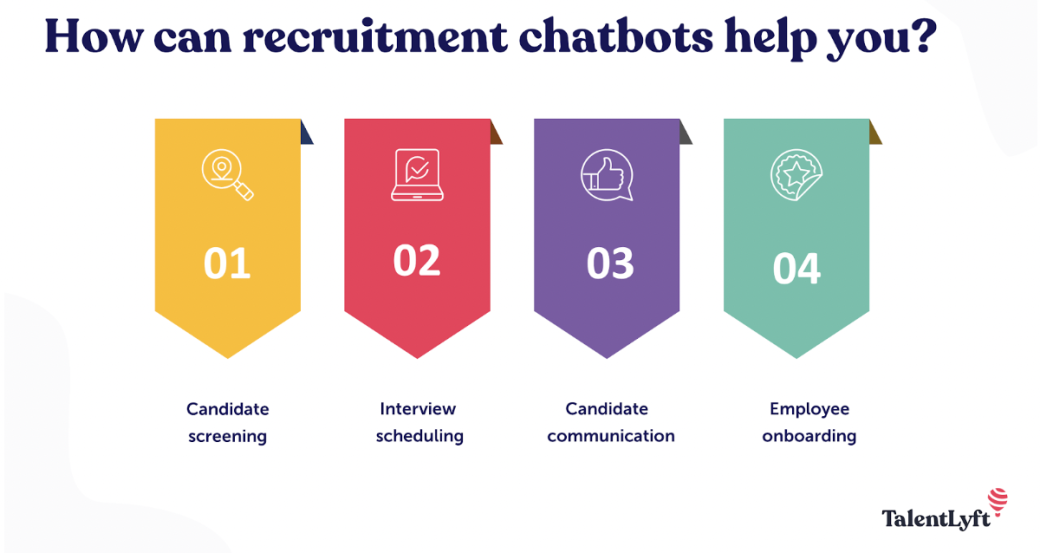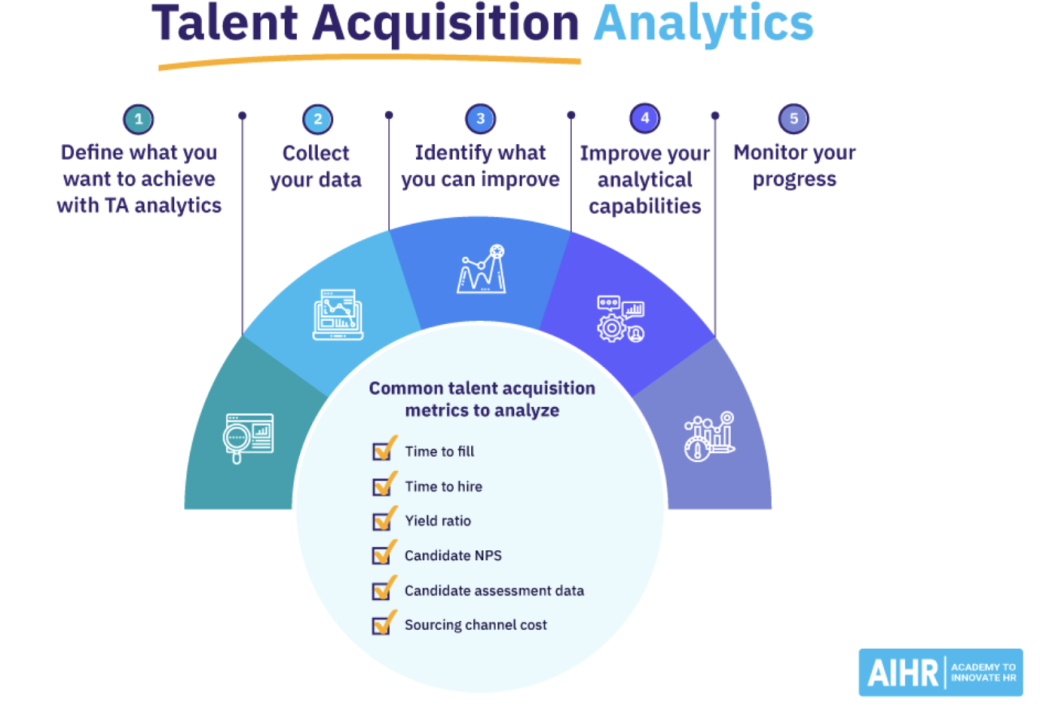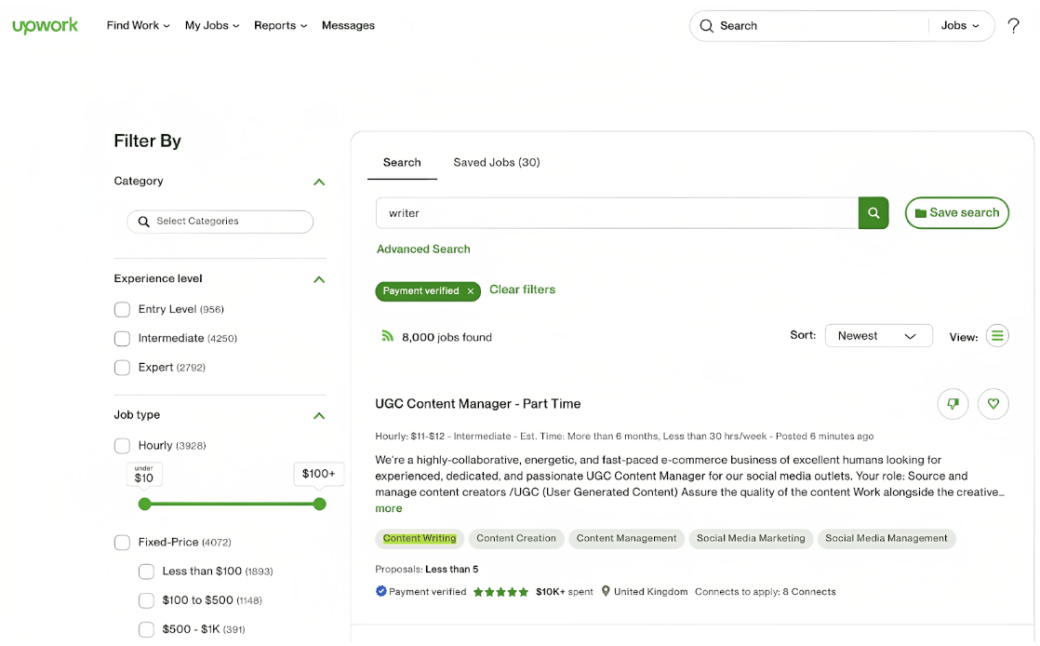9 Recruitment and Talent Acquisition Trends

9 Recruitment and Talent Acquisition Trends
Remote work and virtual hiring processes have become more common this year as organizations adjust to the challenges. Companies are using technology to find and keep talented individuals.
Long-standing best practices in recruiting and talent acquisition are evolving and changing moving toward 2024.
In a post-pandemic world, companies should be making an effort to revolutionize old practices in order to usher in improved talent management systems. This article will cover 9 trends to look out for to ensure that your HR and hiring operations stay ahead of the curve, so you attract and retain top talent.
Connect with recruitment companies that understand the latest trends on The Manifest.
1. Remote Work
Remote work has become more popular since the pandemic, changing how we work. Many important factors have contributed to this shift for individuals and organizations. The main reason behind this change is the COVID-19 pandemic, which has accelerated remote work adoption as companies prioritize employee safety and swiftly adjust to maintain business operations.
Another one is the rapid improvement of technology. It allows people to work together efficiently from different locations. Due to fast internet connections, video conferencing tools, project management software, and online platforms, remote work has become practical for individuals and businesses.
These technologies enable virtual meetings, file sharing, and real-time collaboration, allowing teams to work together regardless of location and fostering connection and teamwork.
Remote work has gained popularity as employees seek a better work-life balance, eliminating commute time and providing more personal and family time.
Moreover, remote work offers companies cost savings and access to global talent. It reduces expenses on office space, utilities, and commuting.
Employers must invest in tools and establish clear protocols for remote workers to stay connected. Managing productivity and work-life boundaries at home requires discipline and effective time management.
2. Enhanced Candidate Experience
The way employers approach candidate experience during recruitment and acquisition has greatly evolved in 2023. Companies now understand the value of providing candidates with a positive and engaging experience from start to finish.
This involves using technology to improve the experience for job applicants. Companies use advanced tools like AI chatbots and virtual reality assessments to make the application process smoother and more interactive. These technologies save time and show that companies are committed to using the latest tools available.

Source: TalentLyft
Employers have realized that treating all candidates the same way doesn’t work. They want to make the recruitment process more personal and unique for each individual. This means using personalized communication, customized tests, and relevant company culture and values information.
Furthermore, employers are placing more importance on being open and transparent in their communication. Companies actively keep job applicants informed throughout the hiring process by giving them regular updates and feedback. This transparent approach builds trust and ensures that candidates feel involved and appreciated during their interactions with the company.
3. Artificial Intelligence (AI)
AI continues to change how companies hire and find new employees. One meaningful change is that more and more companies are using chatbots and virtual assistants powered by AI to screen and talk to job candidates. These intelligent systems could look at resumes, ask the right questions, and give personalized answers. This helped HR professionals save time and make hiring faster and smoother.
AI algorithms have increased their use for finding and matching job candidates. Employing machine learning and natural language processing, organizations can search extensive resumes and job post databases to identify the most suitable candidates for particular positions. This approach has significantly enhanced the speed and efficiency of candidate selection, improving hiring outcomes.
AI helps decrease bias and support diversity in hiring. Companies use AI tools to remove unconscious bias by hiding candidate details in the early screening process. These tools eliminated unfair factors like gender, race, and age, making certain hiring practices fair and inclusive.
Moreover, video interviewing platforms that use AI have become popular. They used facial recognition and sentiment analysis to understand how candidates reacted during video interviews. By looking at facial expressions, voice tone, and body language, AI algorithms gave helpful information about whether a candidate was a good fit for a job, along with regular interview methods.
4. Diversity, Inclusion, and Equity (DEI)
The idea of diversity, inclusion, and equity in recruitment is growing. They impact recruitment by expanding the talent pool with diverse racial, ethnic, and gender backgrounds.
Equitable hiring practices and diversity training programs are being implemented to address biases and foster an inclusive culture. Employers are now actively seeking diverse candidates and creating inclusive environments. The focus is building diverse teams that drive innovation and reflect our world.
5. Enhanced Analytics
Using advanced analytics for recruitment and hiring has become increasingly popular. Companies now understand the value of using advanced analytics techniques to improve their talent acquisition processes. Enhanced analytics involves using smart algorithms, machine learning, and data-based insights to simplify hiring efforts and make better decisions.

Source: AIHR
Recruiters can enhance their efficiency in finding top candidates, minimize bias, and make predictions about candidate success by analyzing extensive data sets, encompassing resumes, social media profiles, and job market patterns.
Enhanced analytics also helps organizations identify sourcing channels, optimize recruitment budgets, and assess the effectiveness of various recruitment initiatives, leading to better hiring outcomes. This shows how important data-based decision-making has become in recruitment and hiring.
6. Skills-Based Hiring
Employers now focus more on candidates’ specific skills than traditional qualifications. This helps them find individuals who can contribute effectively and immediately to their teams and projects. Skills-based hiring involves assessing candidates based on their demonstrated abilities and relevant experiences instead of relying solely on academic degrees or job titles.
Employers are now valuing different skills and adapting to the changing job market. They focus on attracting talented individuals with the right skills for their goals who can adjust to modern work environments. This change in hiring strategies emphasizes the importance of skills rather than traditional qualifications.
7. Automation in HR Processes
Companies are now relying on advanced technologies like artificial intelligence (AI), machine learning (ML), and robotic process automation (RPA) to simplify HR tasks, particularly in the area of finding and hiring new employees. AI algorithms help find and choose potential candidates quickly and fairly, following specific guidelines. This saves time and reduces human bias.
Automation is being used to simplify onboarding, paperwork, and administrative tasks through digital self-service portals. HR chatbots and virtual assistants offer instant support and answers to employee questions. Performance management is improved through AI-enabled tools that track and analyze employee performance data, making evaluations more objective and data-driven.
In addition, automation is changing how HR handles essential tasks like processing payroll, keeping track of attendance, and managing compliance. Robotic process automation (RPA) systems can take care of repetitive tasks quickly and accurately, which means fewer mistakes. This frees up HR professionals to work on more critical projects and strategic goals.
8. Gig Economy and Freelancing
The gig economy and freelancing continue to reshape recruitment. Companies utilize the gig economy to access specialized skills and diverse talent on demand. Freelancers enjoy the freedom to choose projects and have a greater work-life balance.

Source: Upwork
Online freelancing platforms facilitate efficient matching and communication, making it easier for employers to find and hire freelancers. This offers benefits such as employer cost savings and professional growth for freelancers. The gig economy and freelancing are transforming the recruitment landscape, providing flexibility and opportunities for both parties.
9. Employer Branding and Employee Advocacy
Employer branding and employee advocacy remain vital for recruitment and acquisition. Companies focus on building a positive employer brand to attract top talent by highlighting their values, culture, and employee experience.
They also leverage employees as brand ambassadors, encouraging them to share positive experiences and promote the organization on social media. Investments are made in internal communication and engagement initiatives to support these efforts and empower employees to actively participate in the recruitment process.
Embrace Technology to Transform Recruitment Practices
Companies must embrace technology and modernize recruitment methods to attract top talent, streamline processes, and gain a competitive edge.
By adopting practices like remote work, AI, diversity, analytics, and employer branding, organizations can optimize hiring efforts and build a strong workforce for long-term success.
These recruitment practices offer cost savings, access to global talent, improved efficiency, and promote diversity, transparency, and a positive employer brand.
Find the proper recruitment and HR agency for your business on The Manifest.
